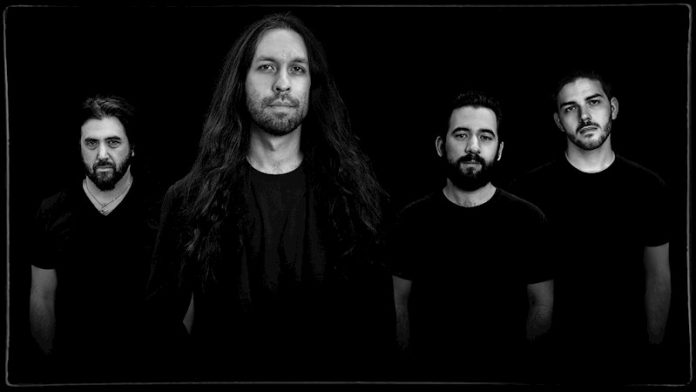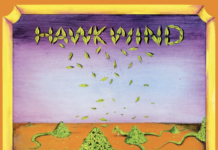‘The Last Semblance’ is the second album from LA band Alizarin, whose debut album ‘Cast Zenith’ was a wholly instrumental piece of work. Guitar man and main man Josh Kay has added vocals prominently to the mix, and (unless it’s just me) listening to them I wondered whether they were just random words included to accompany a piece of music or whether they actually had any meaning. There’s a considerable technique in what Alizarin play, which is a brand of scintillating prog-metal combined with electronica and synths to create a sonic soundscape which is quite challenging, and they come across like a hybrid of Porcupine Tree’s ambiance and the power of Haken, combined with the mazy guitar riffs of Opeth.
‘Elegy Simulacra’ opens with a mix of riffing and swirling background keyboards before the vocals appear. Mid-track Josh Kay lets loose with some intensely fast-playing, which doesn’t somehow fit with the rest of the song. And this remains a theme on several other songs, such as next track ‘Fathom’ which begins slowly with a moody intro. It’s a good piece of work with an emphatic riff but the excess guitar histrionics tended to detract from the song. Similarly with ‘A wreath of Temperance,’ with its acoustic intro and a female voice sings harmony before the tempo picks up and, then, a lengthy solo played at a speed belying the song. But, not every track is like this, however.
‘Velvet Margin’ begins acoustically and largely continues in this vein, making it a better song because, as with the previous piece, two voices are singing together and because there’s less sonic overkill. Pretty much it’s Josh Kay’s guitar which is the dominant instrument throughout the album, being to the fore in most songs, and it’s only when the track ‘Attenuation’ is reached where the synth gets to play a solo break. This is also the longest track on the album and certainly one of the more ambitious, with the music evoking several different moods. ‘The Ivory Silo’ has a gentle intro, after which the synth and guitar kick in with a memorable riff to produce one of the better songs on the album. There’re some lovely touches on this album but the instrumental overkill tends to subtract from the impact the album could have had.



















[…] Source link […]